Vocabulary development Normal Vowels Worksheets for Ages 4-9
6 filtered results
-
From - To
Enhance your child’s language skills with our specially designed "Vocabulary Development Normal Vowels Worksheets" for ages 4-9. These engaging worksheets focus on helping young learners identify and use common vowels in everyday vocabulary, reinforcing foundational reading and writing skills. Each activity integrates fun illustrations and interactive elements to keep kids motivated and excited about learning. Perfect for use at home or in the classroom, our materials support gradual, age-appropriate progress. Download now from Kids Academy and watch your child’s vocabulary and confidence grow as they master the building blocks of language!
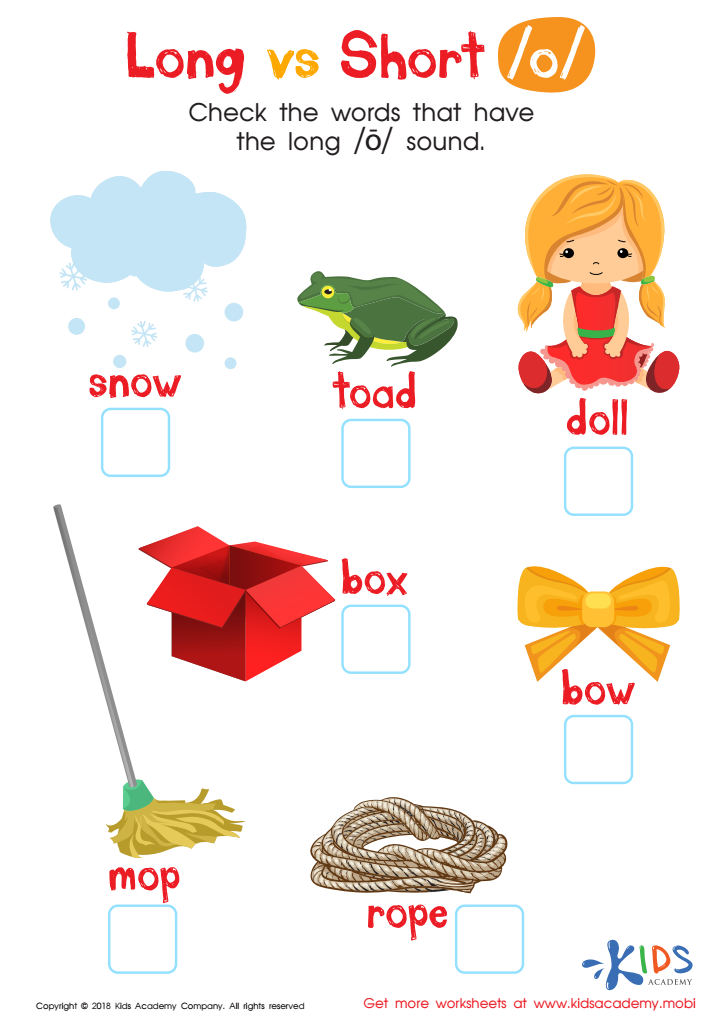

Long vs Short O Reading Worksheet


Vowel and Consonant Sounds: Assessment Worksheet
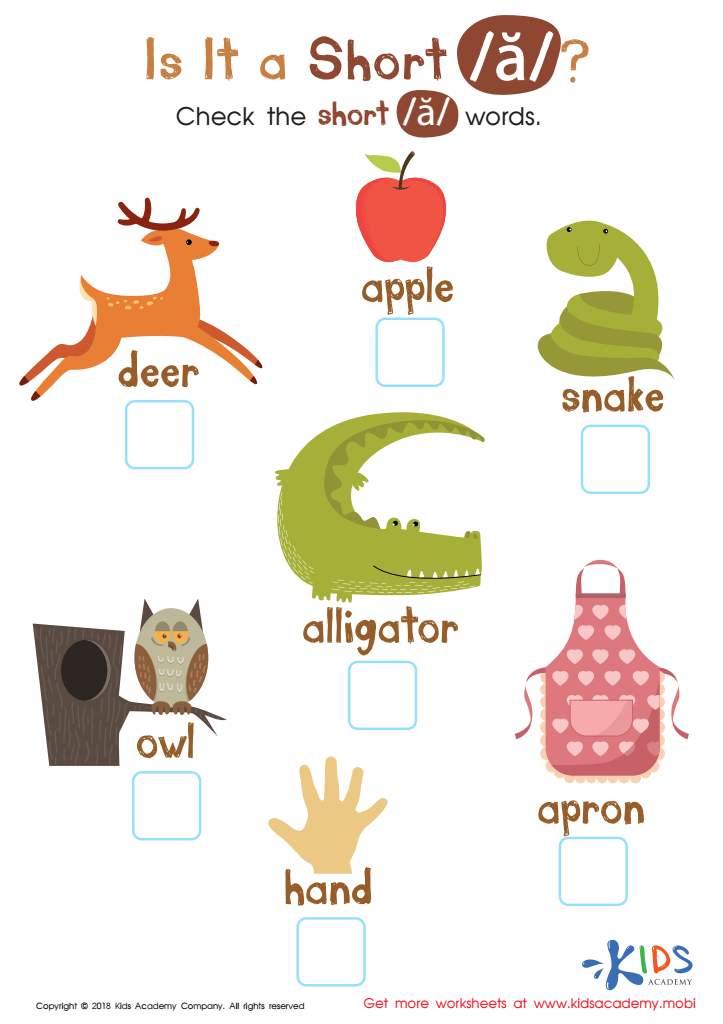

Is It Short A? Reading Worksheet
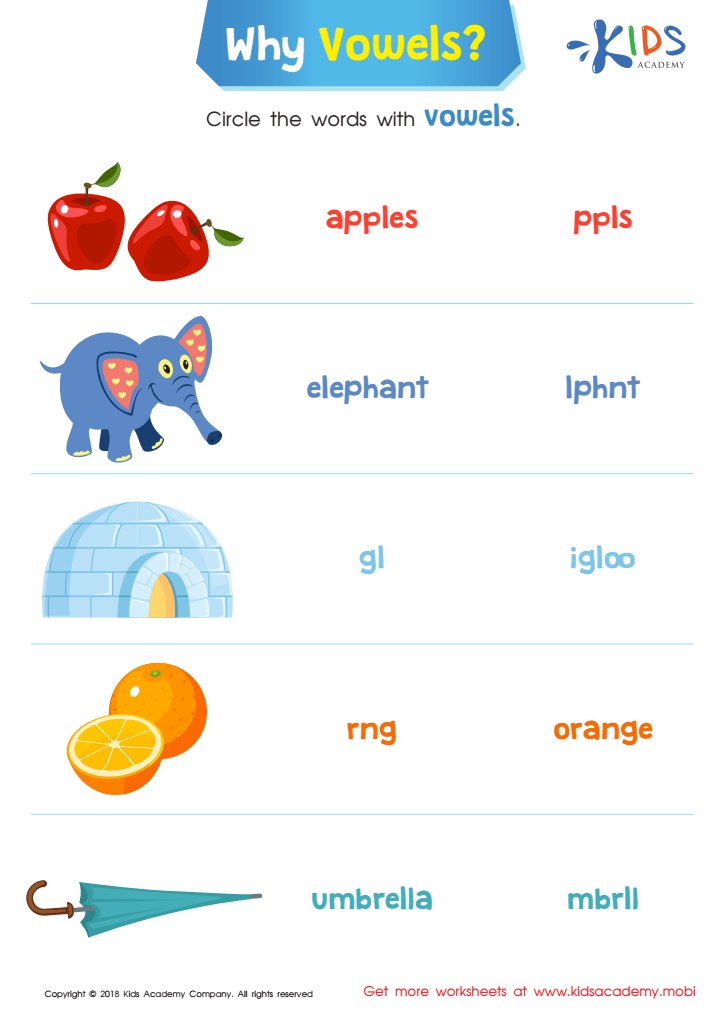

Why Vowels? Reading Worksheet
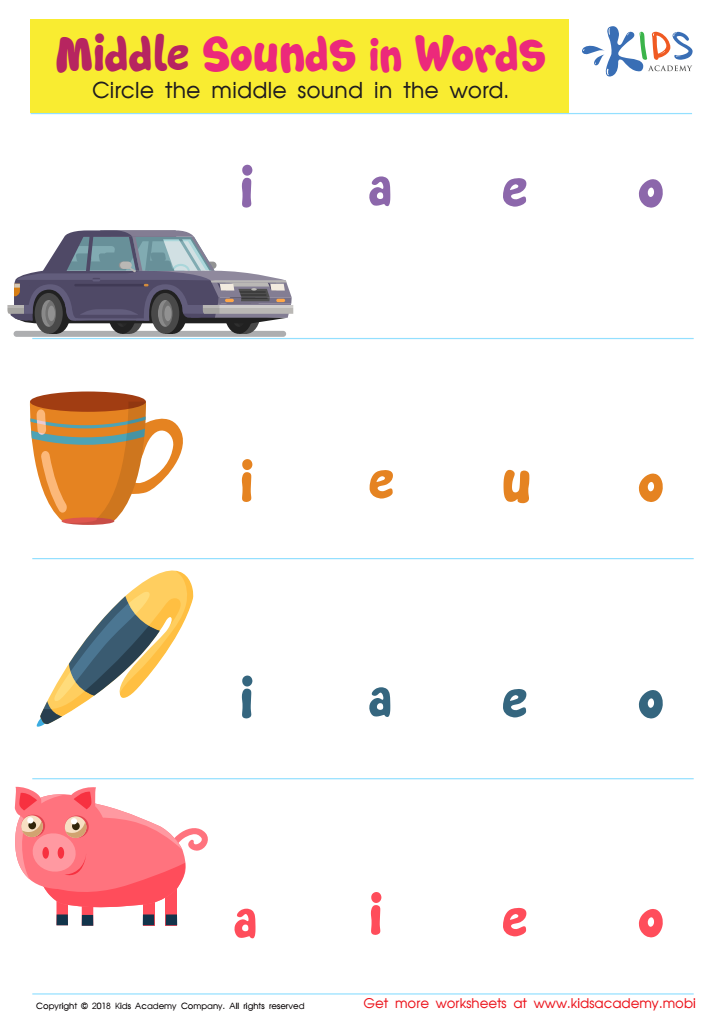

Middle Sounds in Words Worksheet
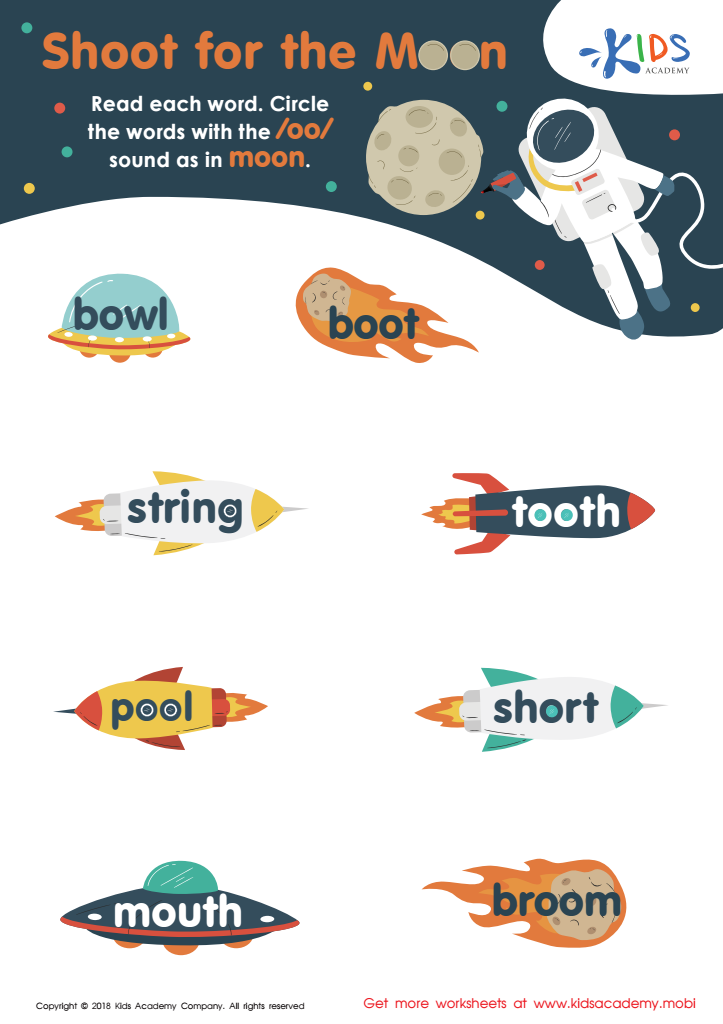

Reading: Shoot for the Moon Worksheet
Vocabulary development during the ages of 4-9 is crucial as this period is a formative phase in a child's linguistic, cognitive, and social growth. Both parents and teachers should deeply care about augmenting vocabulary, including the understanding and use of normal vowels, for several key reasons:
-
Foundation for Literacy: A rich vocabulary facilitates easier learning of reading and writing. Understanding vowel sounds is fundamental as it helps in decoding words, which is essential for fluent reading.
-
Communication Skills: A robust vocabulary equips children to express their thoughts, needs, and emotions more effectively. This proficiency is vital for social interactions and helps in building self-confidence.
-
Academic Success: Research shows a strong link between vocabulary size and academic performance. Children with an extensive vocabulary often find it easier to grasp new concepts across various subjects, leading to overall better academic outcomes.
-
Cognitive Development: Expanding vocabulary helps in improving memory and enhances a child’s ability to process information. It aids in cognitive functions such as problem-solving, critical thinking, and comprehension.
-
Long-term Benefits: Early vocabulary growth has lasting impacts. It forms the basis of advanced language skills in later years which are essential for higher education and professional success.
Thus, by investing time and resources in vocabulary development, focusing also on vowel sounds, parents and teachers lay the groundwork for a child's lifelong learning and achievement.
 Assign to My Students
Assign to My Students











